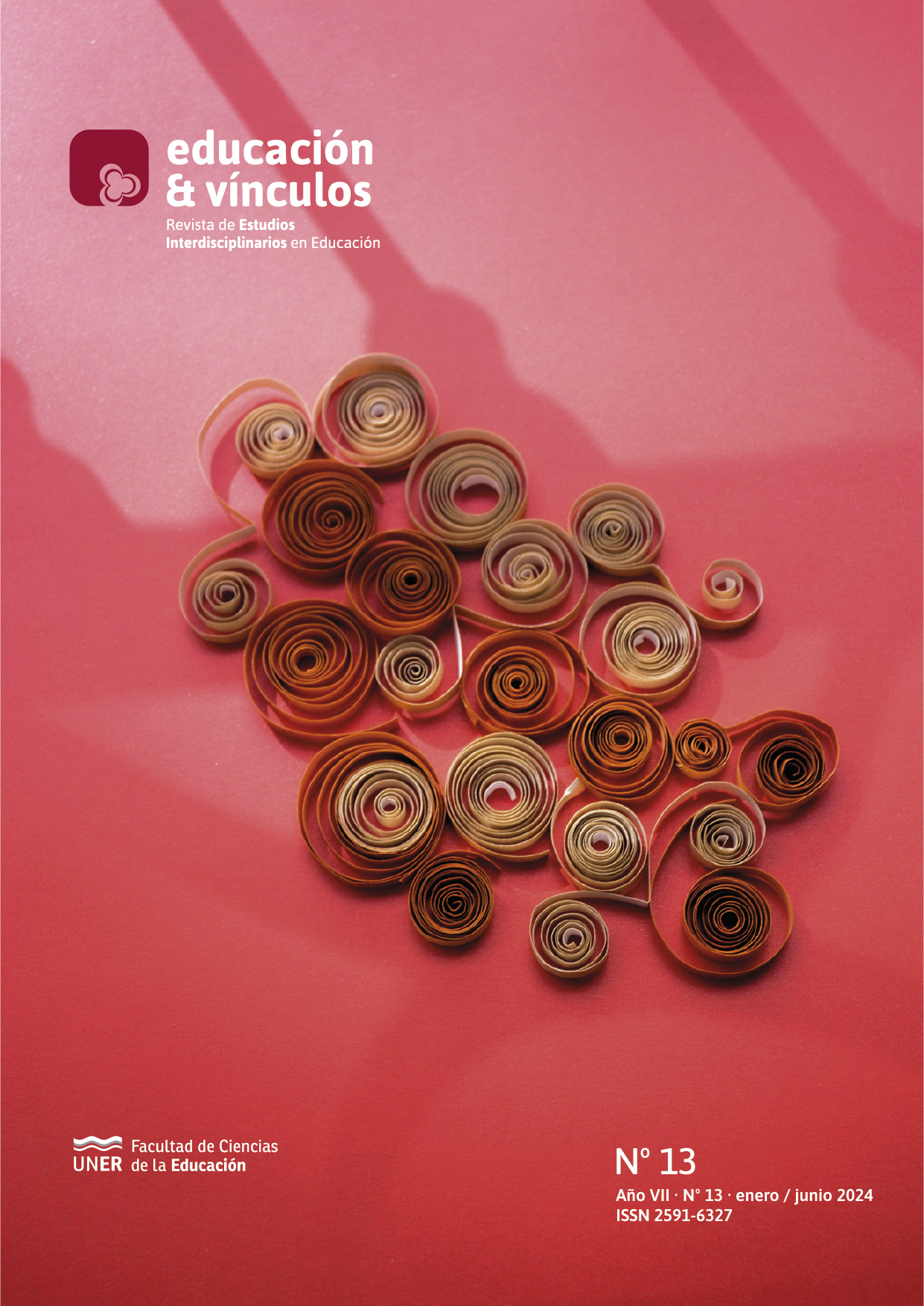La personalización del aprendizaje: estrategias de adaptación de contenido con inteligencia artificial en entornos educativos
DOI:
https://doi.org/10.33255/2591/1940Keywords:
inteligencia artificial, personalizacion de aprendizaje, educación, estrategiasAbstract
The objective of this article is to describe the strategies that allow the personalization of learning through the adaptation of content with artificial intelligence in educational environments. The methodology used was bibliographic design through the review of various scientific studies published in previous years from 2020 to the present. The results obtained guide Recovery, Reuse, Review and Retention. Therefore, the grouping and classification of cases, selection and generation of cases, learning and indexing of cases, measurement of cases, recovery and inference of cases, reasoning, adaptation rules and data mining are defined, which are tasks of artificial intelligence (AI). The conclusions obtained were the technical mastery of technology, including the management of digital resources, as well as tools and applications. Personalization of learning involves the cognitive domain and involves converting information into knowledge through critical and creative thinking exercises, which requires the teacher's adequate analysis and design process for the precision of instructional objectives and the achievement of academic goals.
Downloads
References
ALONSO ARÉVALO, J. y M. Quinde-Cordero (2023). ChatGPT: La creación automática de contenidos con Inteligencia Artificial y su impacto en la comunicación académica y educativa. Revista Desiderata, n.° 22, pp. 136-142. http://hdl.handle.net/10366/152505
CALDERÓN-GARRIDO, D. et al. (2019). La tecnología digital en la Educación Musical: una revisión de la literatura científica. Revista Electrónica Complutense de Investigación en Educación Musical, 16, pp. 43-55.
CASTILLEJOS LÓPEZ, B. (2022). Inteligencia artificial y entornos personales de aprendizaje: atentos al uso adecuado de los recursos tecnológicos de los estudiantes universitarios. Educación, vol. 31, n.° 60. Lima, ene./jun. 2022. Versión impresa ISSN 1019-9403, versión online ISSN 2304-4322. http://dx.doi.org/10.18800/educacion.202201.001
CELA, K. et al. (2010). Evaluación de herramientas web 2.0, estilos de aprendizaje y su aplicación en al ámbito educativo. Revista Estilos de Aprendizaje, n.º 5, vol. 5, pp. 117-134 abril de 2010. http://hdl.handle.net/11162/79590
CHÁVEZ, M.; A. Ramos y J. Velázquez (2017). Análisis de las estrategias docentes para promover la convivencia y disciplina en el nivel de educación preescolar. Educación, 26 (51), pp. 35-54. https://doi.org/http://dx.doi.org/10.18800/educacion.201702.003
CHILIQUINGA, F. y J. Balladares (2020). Rutinas del pensamiento: un proceso innovador en la enseñanza de la matemática. Revista Andina de Educación, 3 (1), pp. 53-63.
COLL, C. (2018). Personalización del aprendizaje. Graó.
CUBAN, L. (2018). The Flight of a Butterfly or the Path of a Bullet? Using Technology to Transform Teaching and Learning. Harvard Education Press.
ENGEL, A. y C. Coll (2022). Entornos híbridos de enseñanza y aprendizaje para promover la personalización del aprendizaje. RIED. Revista Iberoamericana de Educación a Distancia, vol. 25, n.° 1, 2022. Asociación Iberoamericana de Educación Superior a Distancia, España. https://doi.org/10.5944/ried.25.1.31489
GONZÁLEZ-SANMAMED, M.; P.C. Muñoz-Carril y A. Sangrà (2020). Nuevos retos en la formación del profesorado universitario: una propuesta de competencias para el diseño e implementación de programas de aprendizaje personalizado. Revista de Educación a Distancia, 20 (63), pp. 1-23.
GUTIÉRREZ TAPIAS, M. (2018). Estilos de aprendizaje, estrategias para enseñar. Su relación con el desarrollo emocional y "aprender a aprender". Tendencias Pedagógicas, 31, pp. 83-96. https://doi.org/10.15366/tp2018.31.004
JIMÉNEZ-RODRIGO, M.L. y D.A. Camargo-Urbano (2019). Percepción de los docentes sobre la personalización del aprendizaje en el uso de tecnologías en el aula. Revista Iberoamericana de Tecnología en Educación y Educación en Tecnología, 23, pp. 21-31.
LERÍS-LÓPEZ, D. et al. (2016). Participantes heterogéneos en MOOCs y sus necesidades de aprendizaje adaptativo. Education in the Knowledge Society (EKS), 17 (4), p. 91. https://doi.org/10.14201/eks201617491109
LES, T. y J. Moroz (2021). More Critical Thinking in Critical Thinking Concepts. A Constructivist Point of View. Journal for Critical Education Policy Studies, 19 (1), pp. 98-124. https://eric.ed.gov/?q=Critical+thinking&id=EJ1300446
LLORENS-LARGO, F. (2019). Las tecnologías en la educación: características deseables, efectos perversos. Universídad. Blog de Studia XXI. https://bit.ly/3SxO72D
LLORENTE-CEJUDO, M.C.; A. Martínez-Rodrigo y R. García-Ruíz (2019). Aprendizaje personalizado con tecnologías de la información y la comunicación: Una propuesta didáctica en la formación del profesorado. Profesorado. Revista de Currículum y Formación del Profesorado, 23 (1), pp. 81-103.
MARAZA-QUISPE, B. et al. (2019). Model to personalize the teaching-learning process in virtual environments using case-based reasoning. ACM International Conference Proceeding Series, pp. 105-110. https://doi.org/10.1145/3369255.3369264
MARÍN, S. (2019). Ética e inteligencia artificial. Cuadernos de la Cátedra CaixaBank de Responsabilidad Social Corporativa, n.° 42, septiembre de 2019. https://www.iese.edu/media/research/pdfs/ST-0522.pdf
ORGANIZACIÓN DE LAS NACIONES UNIDAS PARA LA EDUCACIÓN, LA CIENCIA Y LA CULTURA (UNESCO) (2020). Inteligencia artificial en educación: Desafíos y oportunidades para el desarrollo sostenible. UNESCO.
PARRA, J. (2022). Potencialidades de la Inteligencia Artificial en Educación Superior: Un Enfoque desde la Personalización. Revista Docentes 2.0, 14 (1), 19-27. https://doi.org/10.37843/rted.v14i1.296
PELLETIER, K. et al. (2021). 2021 EDUCAUSE Horizon Report. Teaching and Learning Edition, April 26, 2021. https://library.educause.edu/resources/2021/4/2021-educause-horizon-report-teaching-and-learning-edition
PIKE, P.D. (2017). Improving music teaching and learning through online service: A case study of a synchronous online teaching internship. International Journal of Music Education, 35 (1), pp. 107-117. https://doi.org/10.1177/0255761415613534
RINCÓN-FLORES, E.G.et al. (2019). Adaptive learning based on AI with predictive algorithms. ACM International Conference Proceeding Series, pp. 607-612. https://doi.org/10.1145/3362789.3362869
ROUHIAINEN, L.P. (2018). Inteligencia Artificial. 101 cosas que debes saber hoy sobre nuestro futuro. Planeta.
RUIZ, E. y D. Ruiz (2023). La inteligencia artificial en la personalización de la educación a distancia. Gaceta. Universidad Abierta y a Distancia de México. https://gaceta.unadmexico.mx/historico-anual/99-2023/julio-septiembre-2023/tecnologias/209-la-inteligencia-artificial-en-la-personalizacion-de-la-educacion-a-distancia
TALSIK, E. (2015). The investigation of readiness for e-learning of pre-service music teachers in Turkey. Anthropologist, 21 (1-2), pp. 263-270. https://www.tandfonline.com/doi/abs/10.1080/09720073.2015.11891815
ULLOA ESPINOZA, C.M. et al. (2024). ChatGPT: Generación de música infantil en contextos educativos. LATAM Revista Latinoamericana De Ciencias Sociales Y Humanidades, 5 (2), pp. 565-577. https://doi.org/10.56712/latam.v5i2.1894
VELASCO SUÁREZ, G.A. et al. (2023). La educación personalizada. Un enfoque efectivo para el aprendizaje. Ciencia Latina. Revista Científica Multidisciplinar, 7 (2), pp. 8059-8074. https://doi.org/10.37811/cl_rcm.v7i2.5942
ZAPATA-ROS, M. (2018). La universidad inteligente: La transición de los LMS a los Sistemas Inteligentes de Aprendizaje en Educación Superior. RED. Revista de Educación a Distancia. Núm. 57 (10), 31/01/2018. http://dx.doi.org/10.6018/red/57/10
ZAPATA-ROS, M. (2020). La enseñanza personalizada en la universidad en línea. Revista de Educación a Distancia, 20 (64), pp. 1-21.



